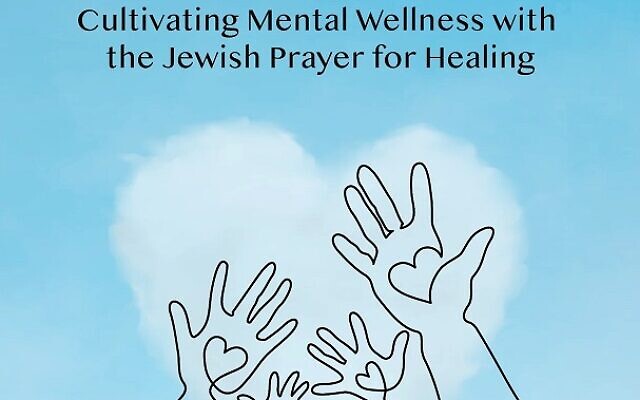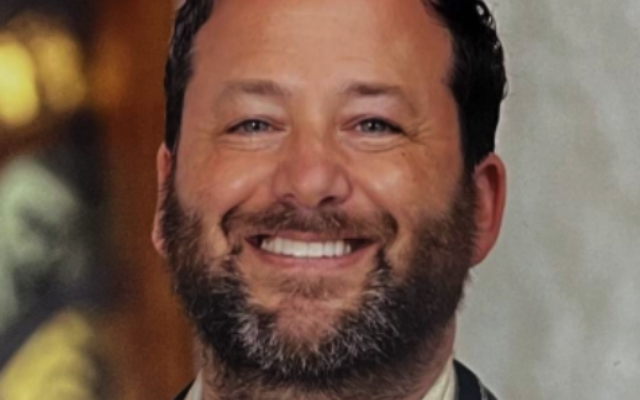Prayer for Healing Inspires Blue Dove Publication
New book by Blue Dove Foundation features wide selection based on the Jewish prayer for healing.

The Blue Dove Foundation, an Atlanta-based nonprofit that focuses on mental health education and awareness through a Jewish perspective, has published “Mi Sheberach for Mental Health: Cultivating Mental Wellness with the Jewish Prayer for Healing,” a resource that emphasizes prayer as a way of coping with a full range of psychological issues.
Launched in May for Mental Health Awareness Month, the 72-page publication adapts the “Mi Sheberach” prayer — a plea for healing that is now a part of the regular Shabbat service — to such contemporary concerns as anxiety, stress, substance abuse, depression, suicide and the psychological health of children. As the publication notes, the original prayer was a general one, “recited only on Mondays and Thursdays, never on Shabbat.” It was only in the twelfth century that “Mi Sheberach” began to be said “for individuals for a variety of reasons, including illness.”

“Mi Sheberach for Mental Health,” which was heavily influenced by the COVID pandemic’s negative effect on community mental health issues, was inspired by Rabbi Brad Levenberg of Temple Sinai. As Levenberg told an audience at a recent online program to discuss the publication, the healing prayer in Judaism has its roots in the Torah portion Baha’alotcha, found in the eighth chapter of the Book of Numbers.
In that section, Moses’s brother and sister are stricken by G-d with tzaraat, a skin disease, for slandering the Israelite leader. Moses’s response is a simple and direct request to the Divine Presence for a refuah shleymah, a complete healing. It is that plea, Levenberg noted, that forms the basis for today’s “Mi Sheberach” prayer.
“We often translate it as the prayer for healing, but ‘Mi Sheberach’ just means ‘who is the one that blesses,’” he said. “What are we being blessed with? What are we asking for? That really begins to form the basis of sort of an understanding that there are a lot of versions of the ‘Mi Sheberach’ prayers out there, a lot that are really beautiful.”
The Foundation partnered with supporters and professionals from the mental health community to create their own version of the prayer. Gabby Spatt, the organization’s founder and executive director, considers the publication an important resource.

“We worked to create this publication as a gift to the community, as a way to connect others who are struggling, who are looking for healing, who are looking for opportunities to learn how Judaism and prayer could connect,” she told the AJT. “So that has brought this incredible opportunity to bring people together.”
Spatt sees this as particularly vital during the first half of this year, as the physical impact of the COVID pandemic begins to recede and people become more clearly aware of the impact it has had on mental hygiene.
In February, the highly respected British Medical Journal (BMJ) published a study of 154,000 COVID patients at the U.S. Department of Veterans Affairs that found that this population was 39 percent more likely to have cases of clinical depression, 35 percent more likely to be treated for anxiety, 38 percent more likely to have stress and adjustment disorders and 41 percent more likely to suffer from sleeping problems than those who were virus-free.
The loss of close friends and relatives to the virus has also created some serious issues related to grief for survivors, as well. According to research at Penn State University, for every person lost to the pandemic there are at least two children and at least four grandchildren impacted by the loss.
Atlanta therapist Nancy Kriseman, who has been a licensed clinical social worker for over 35 years, contributed a prayer for those experiencing grief. In it, she made particular mention of those who are mourning the loss of a troubled relationship. She shared the prayer during a worship service at Congregation Bet Haverim and was unprepared for the response.
“I was just blown away at how many people reached out to me afterward and wanted copies of it and [said] that they found it very powerful and meaningful,” she recalled. “And people also made comments about really appreciating where I did talk about people who had more of a difficult relationship because that’s not something we want to really talk a whole lot about.”
Levenberg says that, from his experience at his own congregation, he often finds prayer to be a powerful source of comfort for those who are otherwise unable to express the mental issues they are confronting. According to the rabbi, the “Mi Sheberach” prayer of healing offers an important starting point.
“I have walked past the sanctuary or the chapel at Temple Sinai and seen somebody sitting alone in silence,” he explained. “And I could tell that their heart was speaking words that their mouths could never fashion. In the words of the ‘Mi Sheberach,’ their experiences can be given a prayerful setting.”
- Health and Wellness
- Books
- Bob Bahr
- Prayer for healing
- Mi Shebeirach
- Moses
- Book of Numbers
- torah
- Nancy Kreisman
- Congregation Bet Haverim
- Temple Sinai
- Blue Dove Foundation
- mental health awareness
- Baha’alotcha
- Gabby Spatt
- British Medical Journal
- U.S. Department of Veterans Affairs
- Penn State University



comments